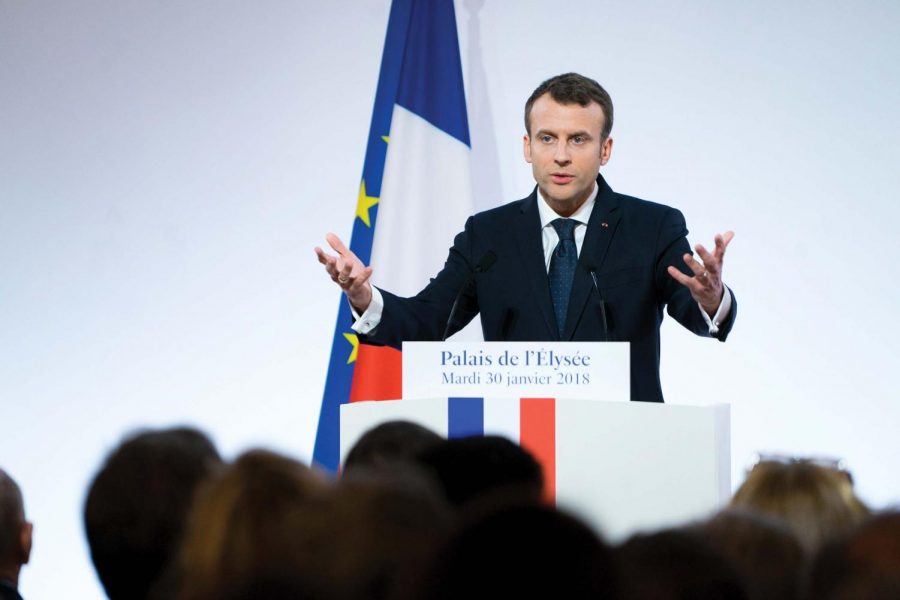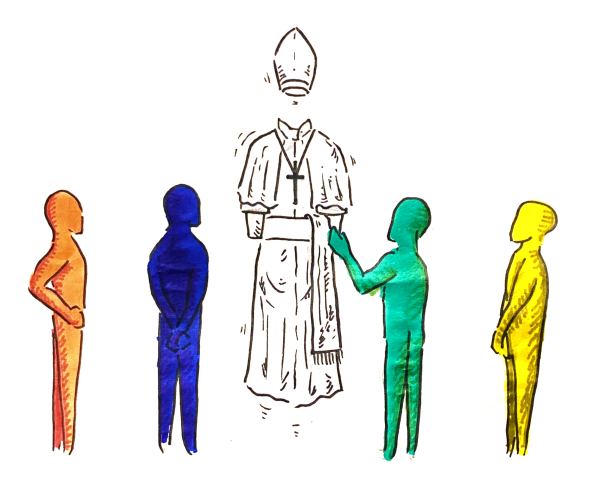Let’s Return to Diplomacy
On September 20, the U.S. government announced that it would send additional troops to Saudi Arabia and the United Arab Emirates in response to an attack on Saudi oil facilities. President Trump has blamed the attack on Iran, announcing new sanctions against Iran’s central bank and its sovereign wealth fund. This announcement comes almost a month after the G7 summit, where, under the mediation of French President Macron, Trump agreed to meet with Iranian President Rouhni.
The French have been working for several months to ease tensions with Iran and preserve the nuclear deal, also known as the Joint Comprehensive Plan of Action (JCPA), that America and five other nations signed in 2015, delaying Iran’s access to nuclear weapons. That was before Trump withdrew from the deal and targeted Iran with sanctions, putting the country’s economy underwater.
Sure, nothing may come of this meeting; the Americans want Iran to agree never to end its nuclear program before they ease restrictions, but Iranians want sanctions lifted before they agree to do so. Talks between the two nations may not transpire. Disappointments are inevitable. However, the French president’s return to the lost art of diplomacy gives me hope that the conflict and violence that I have witnessed these last few years – in Palestine, in the U.K., in the U.S., and in Hong Kong – could someday be resolved. Peace is no longer a right but a privilege for too many, and it becomes more evident that people from all over the globe don’t know how to protect it.
I saw for myself the consequences of hatred in a Palestinian village. A boy just out of high school approached me and explained that Israeli bombings caused him to lose his leg. And in the Jewish quarter of Hebron, I could feel citizens’ fear, as they hid behind metal windows and armed guards. I heard it in the peoples’ voices as they spoke about their children’s futures.
The tension in Palestine, although more violent, is similar to that in the U.K. In Westminster, London, two zealous groups were protesting about Brexit – waving signs, yelling at each other, and preaching only to themselves. One person argued that alt-right Brexiters had ruined democracy and that the common people were being deceived by populist politicians. Then, a member of the UK Independence Party pushed him away to tell me that the “people” need Britain to take control of its laws, instead of letting the E.U. trample over its democracy. He then proceeded to add a racist comment that implied immigrants were killing the country.
Meanwhile, in America, people continue to become more polarized and divided. One mass shooting after another happens and people are starting to become numb. As horrifying as it is, there have been 289 mass shootings in 2019 so far. However, even after walkouts and protests, Congress has not modified gun control laws in response. It seems obvious to some people that gun control measures need to be enacted, yet I have heard many people disagree, citing how important the Second Amendment is to them.
The protests in Hong Kong have divided the world and plunged everything I knew about my hometown into chaos. The protestors, called “terrorists” by Chinese media, and the Hong Kong police, called “jackals” by these young Hongkongers, confront each other on the streets with more and more violence. Smoke from tear gas and the flames of Molotov cocktails blaze at the feet of skyscrapers. The inability of the two sides to listen to each other is astounding.
Discussing political issues these days in most scenarios, is pointless – people rarely walk away with changed perspectives. While politicians have the same arguments on the news day after day, people around the world involved in conflict do not even hear the opposition. Why are we so stuck in our own opinions that we do not even want to try and fix the problems at hand? Discussion has given way to shouting matches in which the winner is the one with a louder voice.
Even France is grappling with civil unrest. When I was there for spring break, the yellow vests protesting at the Champs-Elysees set fire to high-end restaurants and boutiques, ransacked shops, and left many people hospitalized. The next day I walked down what was supposed to be “the most beautiful street in the world,” but instead found only a singular surviving kiosk. Its owner was screaming in front of the cameras: “They break everything and burn everything. It’s worse than a riot; it’s a bloody revolution. It’s worse than the terrorists! ”
As Mr. Macron stood in front of the journalists in Biarritz, he said that he wanted France to be a mediator who could speak to the whole world, leaving no country excluded from the international scene. He firmly disagrees with the maxim “the enemies of our friends are our enemies,” saying it destroys any chance of dialogue between countries. Simply disagreeing with one another on styles of governance should not prevent us from coming together to better others’ lives.
France is not a global superpower; however, its relationships with other countries renders it a crucial part of many negotiations. After a year of reading about and witnessing hatred and misunderstandings, Macron’s vision is inspiring. In an increasingly chaotic world, people start to believe you have to be a monster to deal with a monster, and that is a terrifying future to think about.
It’s time for a change in method. It’s time for a constructive conversation, for reason to prevail over emotion. France made its move; now it’s up to the world to follow suit.






